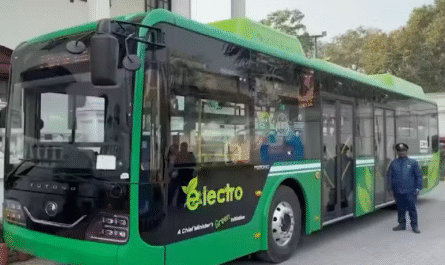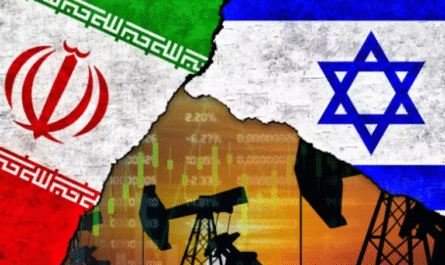Automakers!
In a major step toward sustainable transportation and environmental reform, the Government of Pakistan has officially launched the National Electric Vehicle (EV) Policy 2025–30. The policy lays out an ambitious roadmap to transition from fossil fuel-based vehicles to clean electric mobility over the next five years. With substantial incentives for consumers, automakers, and investors, this initiative is expected to reshape Pakistan’s automotive landscape, reduce carbon emissions, and attract foreign investment in green technologies.
Here’s everything you need to know about this game-changing policy and what it means for you.
🚗 Why EV Policy Matters
Pakistan is one of the countries facing severe environmental challenges, with urban air pollution, traffic congestion, and rising fuel imports putting a strain on both public health and the economy. The transportation sector is responsible for nearly 40% of urban air pollution and a significant portion of greenhouse gas emissions.
The EV Policy 2025–30 is designed to:
- Cut down environmental pollution
- Reduce reliance on imported fossil fuels
- Encourage local manufacturing of EVs and parts
- Create new green jobs
- Promote innovation in Pakistan’s auto sector
🔧 Key Features of the National EV Policy 2025–30
The policy introduces a wide range of tax incentives, subsidies, and infrastructure development plans. Below are the major highlights:
✅ Incentives for EV Buyers
- 0% customs duty on import of EVs (CBU) for personal use for a limited time
- Reduced registration and token taxes for EVs across all provinces
- Interest-free financing options for EV motorcycles and rickshaws
- Charging cost incentives and preferential electricity rates for EV owners
These benefits are expected to make EVs 20–30% cheaper than conventional petrol/diesel vehicles in the long term.
Pakistan Unveils EV Policy 2025–30 – Big Incentives for Buyers & Automakers!
🏭 Incentives for Local Manufacturers
- 100% tax exemption on income for EV manufacturers for the first five years
- 0% sales tax on locally manufactured EVs and batteries
- Duty-free import of machinery and raw materials for EV production
- Grants and subsidies for setting up EV assembly plants and battery manufacturing units
This creates an inviting environment for both local entrepreneurs and international automakers to invest in Pakistan’s EV ecosystem.
⚡ EV Charging Infrastructure Development
- The government aims to install over 3,000 EV charging stations across major cities and highways by 2030.
- Public-private partnerships (PPPs) will be used to accelerate the deployment of charging stations.
- Special incentives will be given to petrol pump owners who add EV fast chargers on their premises.
The widespread rollout of charging infrastructure is vital to support the mass adoption of EVs and eliminate range anxiety among users.
🔋 Focus on Two- and Three-Wheelers
Pakistan’s roads are dominated by motorcycles and rickshaws, which contribute heavily to noise and air pollution. The new policy aims to electrify 50% of all two- and three-wheelers by 2030.
Under this plan:
- EV motorcycles and rickshaws will be available with easy installment plans through microfinance banks.
- Local assemblers are being encouraged to convert existing petrol models into affordable electric alternatives.
- Special charging hubs for these vehicles will be set up in urban areas.
🌿 Environmental & Economic Impact
The implementation of this EV policy is projected to:
- Cut CO₂ emissions by up to 20 million tons annually by 2030
- Save billions of dollars in fuel import bills
- Improve air quality in major cities like Lahore, Karachi, and Islamabad
- Create over 50,000 direct and indirect jobs in EV manufacturing, maintenance, and charging networks
The policy aligns with Pakistan’s commitment to the Paris Agreement on climate change and the country’s broader Green Stimulus Vision.
📈 Opportunities for Investors
With major incentives in place, the EV sector in Pakistan is poised for exponential growth. International automakers, battery producers, and tech companies can now explore:
- Joint ventures with local manufacturers
- Assembly plants for electric cars, bikes, and buses
- Lithium battery recycling units
- Smart charging and battery swapping solutions
Companies like MG, BYD, and Jolta Electric are already eyeing expansion, while startups are actively prototyping EV models tailored to Pakistani roads and needs.
🧭 Implementation & Roadmap
The policy will be rolled out in phases:
- Phase 1 (2025–26): Focus on two-wheelers, rickshaws, and public buses
- Phase 2 (2026–28): Expansion to passenger cars and commercial vehicles
- Phase 3 (2028–30): Full-scale EV adoption, local production, and export potential
The Ministry of Industries, in collaboration with provincial transport and energy departments, will oversee implementation.
🛣 Final Thoughts
Pakistan’s National EV Policy 2025–30 is not just a policy—it’s a bold vision for a cleaner, greener, and more self-reliant future. With the right mix of public awareness, infrastructure development, and industry cooperation, the country could become a regional leader in electric mobility.
Whether you’re a commuter, investor, automaker, or policymaker, this policy offers opportunities to save money, grow businesses, and protect the environment.



